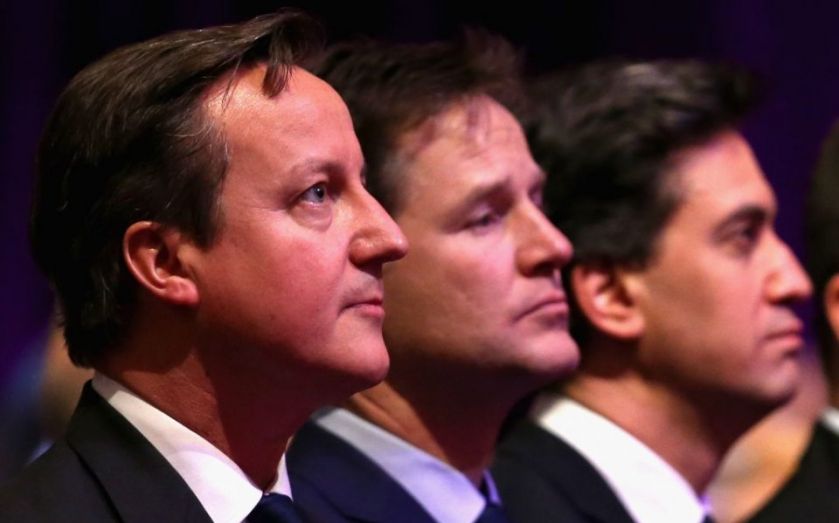FTSE Shades of Grey: Why markets should not fear election uncertainty

Many may well be planning their Valentine’s weekend around the much-anticipated Fifty Shades of Grey film, released today. But the fact we’re now 82 days away from the long-awaited General Election is more likely to get investors slightly hotter under the collar.
Of course, in most cases, elections don’t matter very much at all to stock markets. But this time may be different: this year’s General Election brings with it historic levels of uncertainty, with many already warning that markets will take a hit. Not only do we not know who is going to win, but the rise in support for minor parties means almost any number of coalitions is possible. One online bookmaker is suggesting there’s a 70-80 per cent chance that no party will gain an overall majority.
All the current talk of coalitions underlines just how long five years is in politics. If you look back to the last election, the big news was the arrival of the first coalition government of the post-war era. In 2010, the question was whether coalition, as a form of government, could work at all in the UK. Now, it again looks unlikely that a primary colour will come to power in 2015.
Certainly, no election campaign is run in isolation, and the volatility that we are seeing return to markets, potentially exacerbated by the uncertainty swirling around Westminster, may present opportunities for the active investor. But what would another coalition mean for the market as a whole? Would colour, or shade, really matter to the FTSE? Here are some possibilities.
A Conservative majority might be thought to be the most business and stock-market friendly outcome. Under this scenario, the sectors and companies that have been most hurt by the political and regulatory rhetoric of the past year could perform particularly well.
The bookmakers Ladbrokes and William Hill have, for example, spent much of the last 18 months under a cloud of uncertainty, as the Labour party has suggested that it may restrict the use of highly profitable betting machines. In a similar vein, the energy companies, in particular Centrica, have been hit hard by the frequent interventions of Ed Miliband who has claimed – unfairly, in my view – that these companies are profiteering at the expense of the consumer.
On the other hand, a Conservative majority or a Ukip coalition would make an in/out EU referendum almost certain. This would introduce a high level of uncertainty about inward investment plans into the UK and trading risks for all companies that do business in Europe. These could linger for some time, given the mooted 2017 date for such a referendum.
It is less clear what would happen under a Labour led government. A clear party majority would probably be poorly received by the markets, and may be seen as the most anti-business outcome. But to what degree is unclear, as their hands would be tied by a need to demonstrate fiscal responsibility. We would probably have to wait until later in the year for the dust to settle to assess their policy actions. Shoot first, ask questions later is often how the stock market behaves in these situations – meaning any company or sector potentially in the firing line is not likely to perform well.
Aside from the areas already under attack, I would be concerned about new targets. Any sector that is high-profile and consumer facing could be at risk – like tobacco, the water companies, mobile or fixed line telecommunications firms.
Importantly, a result which leaves a coalition or minority government might actually produce the best medium-term result for the stock market. While there would undoubtedly be volatility in the early days as politicians negotiate for their particular policy initiatives, this could settle down over time.
When it comes down to it, a weak government would not, in practice, be able to diverge very far from the current status quo. There would be no referendum on Europe and probably few transformational tax or policy changes. The tight financial position of the country limits a weak government’s room for manoeuvre, and radical policy changes are unlikely to be passed through Parliament. Furthermore, it is unlikely that any party would want to call a second general election.
Whichever of the two leading parties “loses” the election, it is likely to change their leader, and the Liberal Democrats may also be in the same position. Whatever the result, it’ll be an interesting night. I know I, along with many other market participants, will be staying up.
Simon Gergel is UK Equities chief investment officer at Allianz Global Investors.